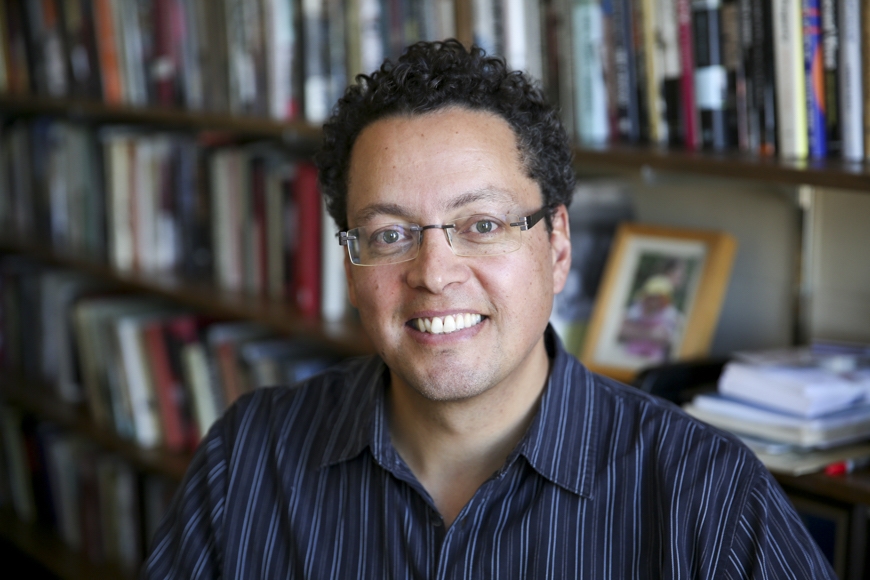Connecting Past & Present
“People see political debates about the rights of public employees erupting in the present for contemporary reasons, but they have very long roots,” says Professor William Jones of the history department. His research focuses primarily on employment in the public sector and bridging the gap between current political issues and historical events.
From Service to Scholarship
Jones spent the summer before college volunteering in Kenya, an experience he cites as sparking his interest in history. “I was really struck by how much people I met there knew about United States history and how little I knew about Kenyan history,” he explains. “It reminded me how much living in a really powerful country gives you the privilege of not paying attention to what’s happening outside.” This inspired him to pursue an undergraduate degree in education at Northwestern University with an emphasis on African history. After he graduated, Jones got a job teaching social studies at a middle school before heading to graduate school. “My intention was to get my master’s so that I could teach in a high school classroom, but I really liked the research and scholarship part, so I stayed for a PhD,” he says.
Jones’ research examines the relationship between race and class in the United States, and he has published books on African American industrial workers in the Jim Crow South and on the 1963 March on Washington. His recent research looks at public employment and the way it has shaped the social status of workers. As he explains, “we tend to forget how central employment is to our lives. It doesn’t just shape who we are at work; it shapes who we are outside of work.” When it comes to the public sector, Jones has taken a particular interest in one union, AFSCME (The American Federation of State, County, and Municipal Employees), an organization founded in 1932 to protect public employees. Today, AFSCME is still a powerful union that fights for the rights of employees in the public sector.
Looking Back, Moving Forward
In April 2018, AFSCME invited Jones to speak at a conference in Memphis, Tennessee to commemorate the 50th anniversary of the assassination of Martin Luther King, Jr. King had been in Memphis supporting an AFSCME union of sanitation workers who were on strike when he was assassinated. Although the conference was about celebrating King’s contributions to the civil rights and labor movements, it also tied in contemporary issues to the historical themes. As Jones explains, “we were looking forward as much as we were looking back.”
Not only did the conference invite experts from around the country to offer their insight, it included organizing workshops for union and student activists. Jones noted that although some progress has been made, the issues that brought King to Memphis are still prevalent in the United States today. That’s why the conversations at this event were so important. “I saw a strong interest in connecting history to contemporary politics in a way that was really exciting,” says Jones.
Jones hopes to continue this type of work in the future and inspire students to think critically about the relationship between employment and inequality. In fall 2018 he co-taught a freshman seminar called Inequality in the American Dream, which explored the idea of equal opportunity for success in America. Jones explains, “the freshmen in this seminar are very engaging and the topic is a timely one. The course made the connection between history and the present that I hope to explore in all my research and teaching.”
This story was written by an undergraduate student in CLA.


